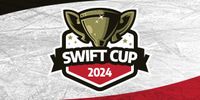
Summer is a busy time for many with barbeques, camping, water activities, and socializing on the agenda. The Cypress Health Region is reminding the public to exercise a few simple precautions to ensure that the summer months are as enjoyable as possible.
Picnics, barbeques, and potlucks are abundant during the summer months and are a great way to celebrate the summer holidays. Taking care of food preparation is an important step to staying healthy during these times. Before eating, preparing, or handling foods, wash your hands with soap and water and use paper towels. Keeping food either hot or cold right up to the moment of cooking and/or serving prevents bacterial growth that can cause illness. It is recommended that meat, poultry, and seafood all be cooked to appropriate temperatures prior to consumption. Partial precooking is not recommended. If you are using a barbeque to cooks foods it is particularly important to ensure that foods taken directly from a freezer are thoroughly cooked both inside and outside; the appearance of cooked meat on the outside does not necessarily equal cooked meat on the inside. The use of hand wear and proper utensils around a barbeque are important to prevent burns from hot temperatures.
Interview with Dr. David Torr
Other helpful food handling tips include washing fruits and vegetables thoroughly before cutting and refrigerate if not being eaten right away. Ensure all plates, cutting boards, and utensils are washed, rinsed, and sanitized (where possible) before use, especially when in contact with raw meats.
On short trips it is recommended that you bring your own bottled or purified water. If purified water is not available heat is still the safest, most effective method to purifying contaminated water. In a heat-safe container bring water up to the boiling point and maintain a rolling boil for at least one minute, then allow it cool. Only treated, purified, decontaminated water should be used for drinking, brushing teeth, and washing fruits and vegetables.
On hot days where UV indexes approach dangerous levels it is wise to be mindful of the potential dangers that the sun’s rays cause. Wearing sunscreen, sunglasses, staying hydrated, and taking shelter in shade or cooled indoor environments will help protect you from sunburn and heat stroke. Prolonged sun exposure on seemingly unharmful cloudy days can result in dangerous exposure to UV rays. Children are particularly susceptible and require maximum protection. Intense sun exposure during early childhood appears to increase one’s risk of health consequences later in life.
With warm weather the likelihood of severe weather increases. During a summer prairie storm it is best to take shelter indoors. When indoors and lightning is present do not use corded telephones and avoid items that conduct electricity such as appliances, bathtubs, radiators, and metal pipes. If you are in a vehicle and approach severe weather stay inside the vehicle and park in a location void of trees and power lines. Do not touch any metal.
If you are caught outdoors during a storm and no immediate shelter is available look for low lying areas that are clear from streams in the event of flash flooding. The key to severe storms in summer is to minimize your contact with the ground and make yourself a small target to reduce the risk of being electrocuted by a ground charge.
Tornadoes can be common in Saskatchewan and have potential to cause widespread destruction. Signs of a potential tornado include lightning, extremely dark clouds, and a rumbling or whistling sound that is caused by flying debris. If you suspect a tornado go to the basement or take shelter in a small interior ground floor such as a bathroom, staying away from windows, doors, and outside walls. If you are in a vehicle during a tornado do not stay in the vehicle. Take cover by crouching in a low-lying area such as a ditch and be prepared to move in the case of flooding. Do not take shelter under a bridge or overpass. Winds can accelerate under an overpass and cause injury or death from flying debris.
If you have a medical emergency please dial 9-1-1 immediately to access an ambulance. For non-urgent medical advice call HealthLine at 8-1-1; a trained, registered nurse is available 24 hours per day, 7 days per week.
Latest in Local News
Latest stories on SwiftCurrentOnline
- Events
- Jobs
- Buy & Sell
Events
-
Rampage Lacrosse U11 & U15 Games
Sat, May 4, 10:00 AM
-
The Ladybug Tradeshow 2024
Sat, May 4, 10:00 AM
-
Red Dress Day Gathering
Sat, May 4, 1:00 PM
-
West Wing Gallery Open for the Summer!
Sat, May 4, 1:00 PM
-
Dead Prairies Productions - Devon Oman appearance on Brewing Fiction Podcast
Sun, May 5, 8:00 AM
-
FOH Staff (Bartenders, Servers, Hostess)
Full-time, Hourly, Part-time, Permanent, Hospitality
Featured
-
Grocery Stock Clerk (Student) - Swift Current Wheatland Mall Location
Retail, Entry-Level, Part-time
-
Clerk I (Stock) (Frozen/Diary) - (PT)
Part-time, Retail
-
Full time/Part Time Cook
Hospitality
-
Painter / Sandblaster
Full-time, Hourly, Labour














